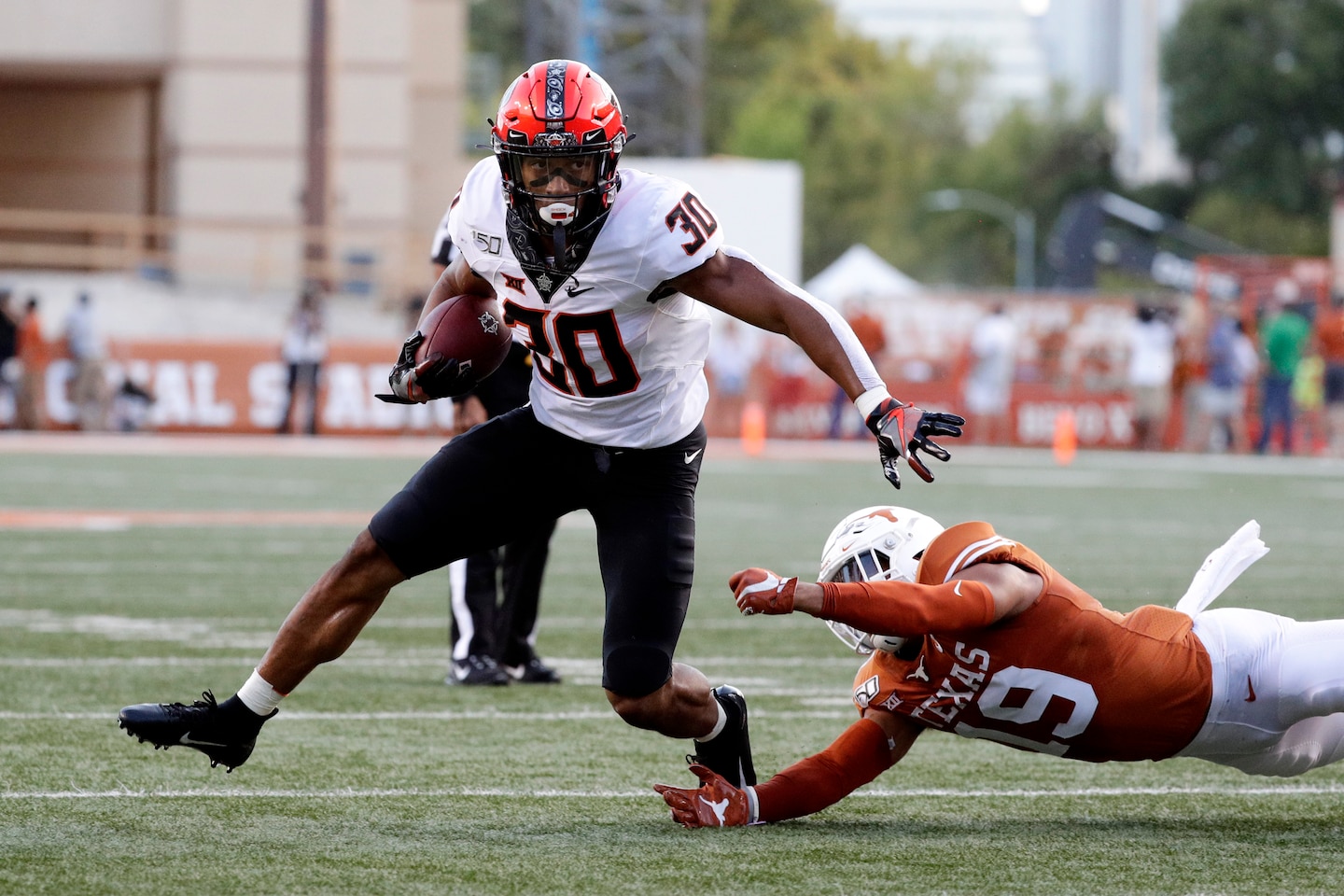It’s time for black labor in college sports to demand new ground rules

It is a truism that parents and guardians of black athletes whom college coaches are recruiting for football and basketball should be emboldened to appropriate right now: “Don’t Play Where You’re Not Respected.” In other words, don’t let your son labor for a college program that doesn’t support valuing black life.
It long has been time to flip the script on college recruiting, specifically for the black labor — football and basketball players — that produces the revenue that makes it possible for sports they don’t play to exist and for athletic directors and coaches to become millionaires. The athletes should have been gaming the system, of course, demanding that it meet their needs. After all, if those athletic programs could turn them into champions and all-Americans and first-round draft picks, they also could turn them into scholars and college graduates and purposeful minds in the economy rather than fail them.
But now there is a new demand for those athletes to add to that list. It is that the coaches and teams that so badly want them understand the worth of athletes not just as cogs in the multibillion-dollar college athletics industrial complex but as citizens in the human race.
A group of top football recruits from Southern California alluded to as much a few weeks ago when they produced a video in the wake of George Floyd’s killing.
“I am not just a player. I am someone’s son,” one teenager says.
“Brother, friend,” peers repeat.
But that has not been how so many coaches who whisper little more than sweet nothings in the ears of easily impressed young athletes — and the adults in their homes — see them. To be sure, the wave of outrage from the killings of Floyd, Ahmaud Arbery, Breonna Taylor et al. that washed over the country has laid innermost feelings bare.
Take, for example, Clemson Coach Dabo Swinney, who sported a T-shirt emblazoned with the words Football Matters — a repudiation of Black Lives Matter just like Blue Lives Matter or All Lives Matter — shortly after joining the chorus of coaches issuing what will be considered, until proved otherwise, perfunctory statements about the value of black lives. Swinney later attempted an explanation of his clothing choice while responding to a charge that he did not discipline a coach who spat a racial slur at one of Clemson’s players, the majority of whom are black.
Florida State Coach Mike Norvell said he had spoken with each of his charges — the majority of whom are black, too, like most of major college football — about Floyd’s death and the uprisings that ensued. But one of his star players, Marvin Wilson, who is black, took exception on Twitter to his coach’s claim and said he and his teammates would strike until Norvell apologized for lying. Norvell did.
Oklahoma State star running back Chuba Hubbard publicly chastised his often tone-deaf coach, Mike Gundy, for sporting a T-shirt touting One America News Network, which spews racist conspiracy theories such as one questioning details of Floyd’s death. Gundy struggled to apologize.
There is no reason black players should sign to play for such teams.
“I think coaches’ support on the BLM movement definitely has some sort of effect on my choice. There are certain topics that I need the school to support,” Ceyair Wright, a cornerback at Loyola High in Los Angeles who worked on the video, told me in a message via social media. “BLM is one of them.”
And there is no reason black players should stay on these teams if they are there already. Kei’Trel Clark and Tayvion Land refused to stay at Liberty after its irascible president, Jerry Falwell Jr., who often traffics in bigoted thought, tweeted a picture of a face mask decorated with an image of one person in a Ku Klux Klan robe and another in blackface. “Due to the cultural [incompetence] within multiple levels of leadership, it does not line up with my code of ethics,” Clark wrote in announcing his transfer.
College football as a whole in this moment, in this pandemic, in this reckoning with toxic systemic racism, is not living up to the human code of ethics. How can it open its practice facilities on campuses for football players while keeping the campuses on which those facilities rest closed to students and limited to staff and faculty because of health concerns? Are the lives of football players — most of whom, it must be underscored again, are black — not as worthy as those of everyone else who would be on campus, who predominantly are not of color?
Is there no one in college athletics, except those at historically black Morehouse, which canceled its fall sports season, sensitive to the disproportionate impact of the novel coronavirus on black families?
After University of Arizona President Robert Robbins announced last week that the campus wouldn’t reopen at this time because of the state’s spike in new coronavirus cases, Wildcats cornerback Malik Hausman tweeted, “So why [are] me and my team on campus then?”
His teammate Issaiah Johnson tweeted his answer: “The NCAA and universities want us to play during a global pandemic so they won’t lose millions of dollars …”
The time is now that black athletic labor in college sports determines the contours of the environment in which it will participate. It must demand to set the ground rules and disregard those who refuse to accommodate them. College sports cannot survive without it.
Like that old hamburger stand on U Street, those who run the games will have to adjust. That manager hired back his three black workers.
Kevin B. Blackistone, ESPN panelist and visiting professor at the Philip Merrill College of Journalism at the University of Maryland, writes sports commentary for The Washington Post.
Read more:






